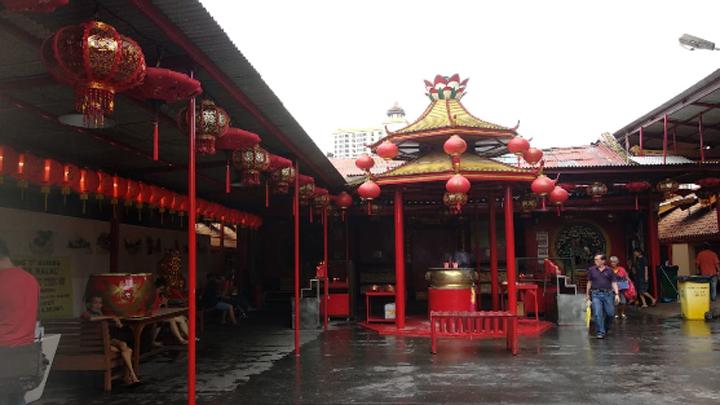
TEMPO.CO, Jakarta - Djiauw Kie Siong was a seller of coffins who lived by the Citarum River in Karawang, West Java. On the night of August 16, 1945, there were pieces of paper all over the front room of the Chinese trader’s house. A number of guests who had stayed less than 24 hours in his home had left. They had been discussing the future of Indonesia: between freedom now or never. The Djiauw family was too afraid to keep these historic papers. Frightened they would be seized by the Japanese, they burned them.
The Djiauw house with its terracotta floors had become a witness to history. A number of radical youths together with troops from the Defenders of the Homeland militia had imprisoned Sukarno and Hatta there. Sukarno had brought his wife Fatmawati and their eight and a half-month-old child Guntur. Fatmawati remembered the house had a large yard full of pig droppings. Djiauw raised pigs as well as cows, goats, chickens and ducks in pens. Sukarno and Hatta had previously been kept in another house with poor ventilation. The Djiauw house was seen as more suitable particularly because Guntur was still a baby.
Djiauw was no ordinary person. His ancestors were Hakka Chinese from Guangdong Province. When he was eight years old, Djiauw and his parents crossed the Citarum River, which at that time often overflowed its banks. His parents chose the dry river valley for a place to make their home. As well as selling coffins, the family excavated sand and sold bamboo poles. Djiauw was known by his neighbors as a helpful person.
Because he helped the youths, the story of Djiauw’s life is a small piece of history with a significant impact. A day after being imprisoned in Rengasdengklok, Sukarno and Hatta proclaimed Indonesian independence. From that day, the struggle of the Indonesian people changed – from seizing independence to maintaining it.
Djiauw was not alone. The history of the founding of this Republic is marked by the important parts played by people big and small of many ethnic groups, tribes and religions. Among the ethnic Chinese were Liem Koen Hian, a member of the Investigating Committee for Preparatory Work for Independence and Yap Tjwan Bing, a member of the Preparatory Committee for Indonesian Independence. Their roles were not small, and were sometimes full of irony. For example, Liem pushed hard for the constitution to guarantee the right of ethnic Chinese people born in Indonesia to automatic recognition as native citizens. His proposal was rejected. Known to be close to the communists, he was arrested and subsequently became a citizen of China into his old age.
Indonesian history is not always honest about the part played by ethnic Chinese people. During the New Order, their political role was restricted, and they were even expunged from textbooks. It is regrettable that the roles of ethnic Chinese activists and politicians were erased from the official historical literature. Books published in 1975 state that the body preparing for independence comprised a chairman, two deputies and 60 members, including four representatives from the ethnic Chinese, Arab and Dutch mixed-race communities. However, the phrase “ethnic Chinese” disappeared from books published in 1993.
The story of the ethnic Chinese at the beginning of independence – also of Arabs and those of mixed Indonesian and Dutch parentage – shows that Indonesia was not established by one ethnic group, or the members of one tribe or one religion only. Indonesia is the result of an agreement by many people from various different backgrounds. From the beginning, Indonesia has been a pluralistic state – which proves the irrelevance of the identity politics that has reappeared over the last few years.
The government and stakeholders should be aware of the history of this pluralism, especially since people’s suspicion of ethnic Chinese is gradually lessening. A 2016 survey by the Saiful Mujani Research Center showed that anti-Chinese sentiment among the public was at around 0.8 percent – far less than that towards terrorism or the LGBT community.
The recent reappearance of identity politics must be tackled wisely. Marked by large demonstrations in 2017 to protest against Jakarta Governor Basuki Tjahaja Purnama, who was accused of insulting the Qur’an, anti-Chinese sentiment has reappeared. It is regrettable that the government gave into mobocracy: jailing Basuki so that the demonstrations did not spread and continue. On one hand, this was a smart strategy in order to reduce anger, but on the other, it proved the effectiveness of identity politics.
The efforts to bury pluralism must be opposed by everybody. Apart from looking at history, there must be a campaign about diversity. Pluralism needs to be put into practice in every aspect of life, without exception.
Read the Complete Story in this Week's Edition of Tempo English Magazine























